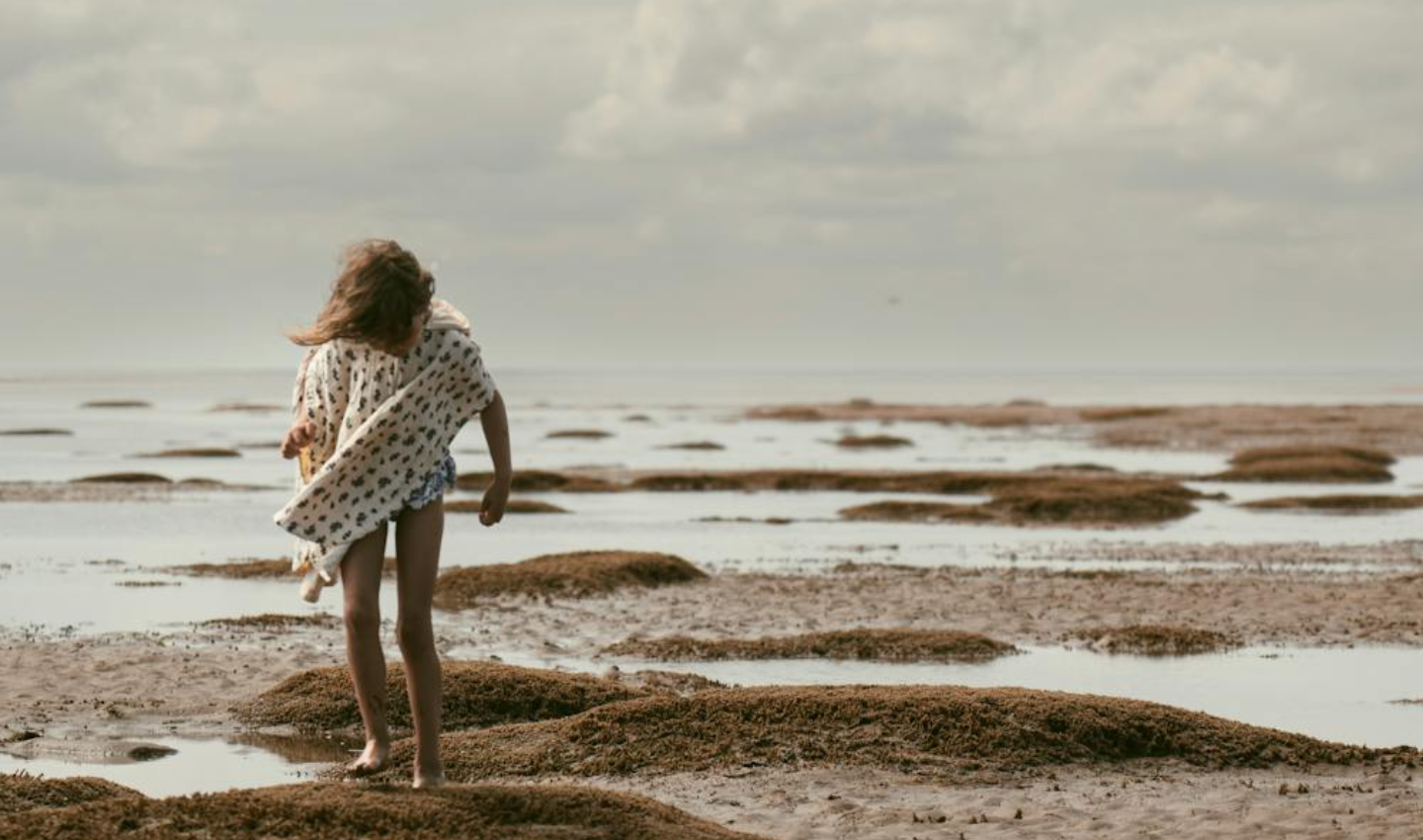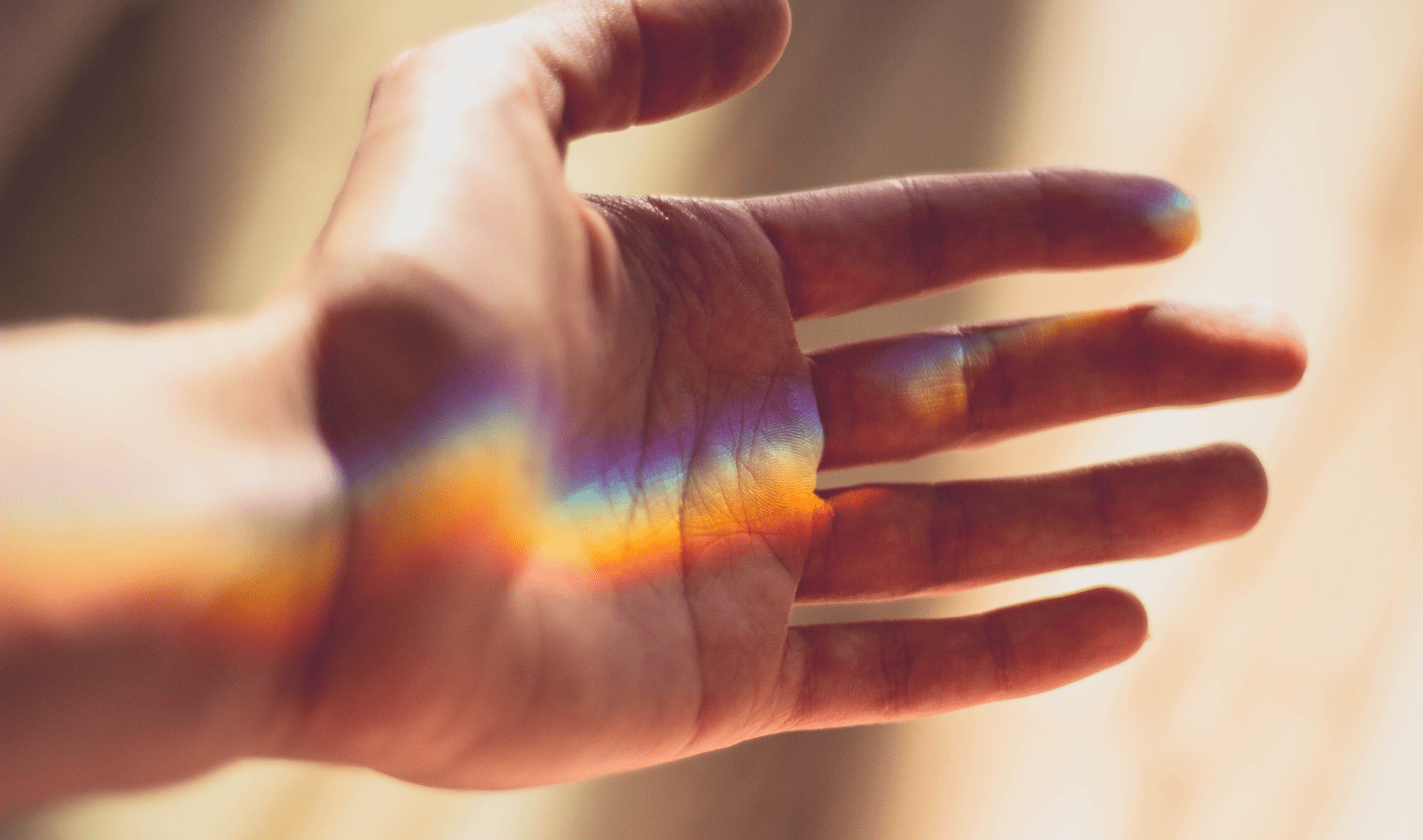- Take Action
- Voices of the Ocean
- Wavemaker: Resources
How to turn eco-anxiety into eco-agency

To protect Earth’s most precious ecosystem – our Ocean – we must first understand its importance. Our Wavemaker Programme empowers young people between 16 – 25 to use their voice and talents to make a positive impact on our blue planet. This piece was written by one of our Wavemakers. Submit your own story.
Ocean threats don’t just impact the environment and non-human creatures, but our own health and wellbeing too. One key way the environment’s degradation can impact us is through eco-anxiety.
Shrinking ice caps, disappearing biodiversity, fiercer bushfires, heat waves , and flash floods. The effects of climate change are difficult to ignore.
These disasters not only cause immense physical destruction – a growing body of evidence shows they’re also taking a toll on our mental health.
What is eco-anxiety anyway?
Eco-anxiety is extreme worry about current and future harm to the environment caused by human activity and climate change.
Eco-anxiety can be caused by the stressful and frightening experience of “watching the slow and seemingly irrevocable impacts of climate change unfold, and worrying about the future for oneself, children and later generations“, according to a 2018 report.
How do I know if I have eco-anxiety?
Eco-anxiety can feel like feelings of loss, helplessness, frustration, and guilt, as the sufferers feel they are unable to stop climate change.
Feeling this anxiety is an emotionally mature state to be in, which shows that you are aware of the crisis that we are all facing.
So, whilst it can be unpleasant, it can show a willingness to face painful truths and facts, and that should be acknowledged and almost (though not quite as simple as this) be celebrated. But how?
When facing eco-anxiety, remember you’re not alone.
First of all, try to recognise your feelings as completely reasonable and necessary, rather than push them away.
Taking time to acknowledge my feelings helps me maintain a healthy relationship with them, and often motivates my work and activism.
Finding your place in a community can also be a huge help with feelings of despair and anxiety. There are a lot of support and activist groups you can join (read on to the tips section to see some example groups).
Shared belonging and concern can be a great support and working towards tangible solutions can give a much greater sense of control in overwhelming circumstances.
Know when to seek professional help:
If your eco-anxiety is so severe that it causes you to be unable to function, or feels unbearable, you could consider seeking professional help. Try to bring empathetic understanding and connection to, ideally, find meaning in this experience.
It is often the loss of meaning that causes people the most suffering.
Understanding that these feelings have meaning can be comforting. The ideal is to find balance between feeling these emotions, and then using them in different ways to create meaningful change, better relationships with your family and friends, maybe even more meaningful work and activism of some kind.
At least know that you are not alone with your fears.
Eco-Agency: Steps to tackle eco-anxiety
Since 2017, and especially since autumn 2018, there has been increasing coverage about eco-anxiety and climate anxiety in various media.
One focal point in this discussion has been the young climate activist Greta Thunberg, who has openly spoken of her climate change anxiety.
Climate anxiety became perhaps the most discussed form of eco-anxiety, and it was often discussed in relation to the children, youth, and young adults who participated in climate action.
More studies on the mental health impacts of climate change have been published. In 2020, books for the general public began to appear, providing suggestions for self-help and social action in order to alleviate eco-anxiety and especially climate anxiety.
Book recommendations to learn more about eco-anxiety and how to deal with it:
– A guide to eco-anxiety: How to protect the planet and your mental health.
– A field guide to climate anxiety: How to keep your cool on a warming planet.
– Turn the tide on climate anxiety: sustainable action for your mental health and the planet.
– Why has nobody told me this before?
Acknowledging that there are many people feeling this anxiety and looking at options of how you could help yourself and others, helps you move from an eco-anxious mindset to an eco-agent perspective.
Eco-agency is being proactive in looking after yourself and your wellness within your environmental actions.
It means ensuring you are mindful of your mental health and keeping fit and healthy. The next couple of tips are ways I found have helped me move from eco-anxiety to eco-agency.
Tips to deal with eco-anxiety
Here are five steps I find have helped me live, cope with and overcome eco-anxiety.
1. Try and live in alignment with your values
The impact of individual actions can be very small, but psychotherapist Mary-Jayne Rust suggests that changing your lifestyle to be more compatible with your values can help with eco-anxiety.
Researchers from Imperial College London’s Grantham Institute offered several ways to do this: eat less meat and dairy, drive less and stop buying and disposing of so many items.
2. Don’t feel ashamed about feeling anxious
For example, environment writer and activist Emma Marris noted that billions of people fly.
“My individual actions are not actually capable of solving climate change,” she said.
While changing how you live and travel may help you by letting you live more closely in accordance with your values, you shouldn’t feel ashamed for not being fully able to comply with these.
“The systems in which we are all enmeshed essentially force us to harm the planet, and yet we put all that shame on our own shoulders,” said Marris. “The shame is not helping anybody.”
3. Focus your efforts on changing systems, not yourself
Marris argues that we can’t get where we want to be through individual action, and that accepting this has therapeutic benefits.
“I don’t think a complete narcissistic focus on the self is healthy,” she points out. Instead, Marris suggests you can have a much more meaningful impact by working with others to lobby governments.
The Grantham Institute advises letting your MP, local councillors and mayor know that you think action on climate change is important and writing to your bank or pension provider to ask if you can opt out of funds that invest in fossil fuels.
4. Find like-minded people
Finding a community of like-minded individuals can help you express and share your feelings of eco-anxiety. You can’t solve climate change on your own. Joining a group of some kind will enable you to make friends.
I’m not an expert on mental health but I feel like making friends is helpful – giving you a space to share your thoughts and feelings.
Organisations that address eco-anxiety:
– Eco-anxiety support group with Waterspirit
– Force of Nature community
– Take Climate Action
– Climate Psychologists
– Climate & Mind
– The Climate Dreams Project
– Climate Journal Project
– EcoAnxious Stories
– The Mental Health and Climate Change Alliance
– Talk about the changes you make
The importance of talking about your experiences – the challenges as well as the positives – and bringing other people along with you.
Talking about the practical things you can do in their day-to-day lives can give you some sense of control back and empowers you to take ownership of your choices and agency.
I’d be lying if I said that there wasn’t a lot of time when you think, ‘Why do we bother?’ But, when you sit down, chat to other activists or advocates and have a bit of a think about it, you realise that there’s a huge amount that we can still do.
Yes, our planet and Ocean are in trouble. But it’s in our power to protect what’s left and make a meaningful difference.
And that’s why we do this.
That’s why we carry on.
If you’d like a chance to meet others, learn more about our Wavemaker Programme. And if you’d like to submit your own Wavemaker Story, do so here.




